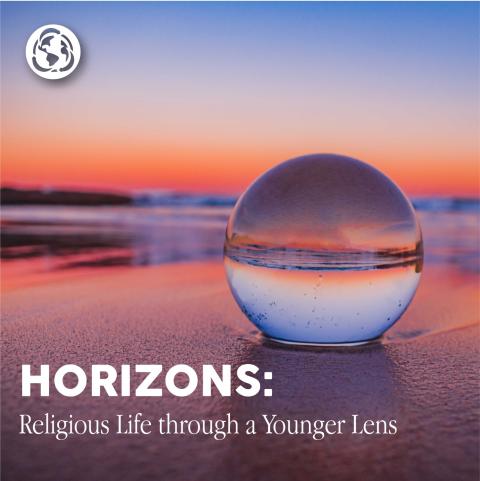
(Unsplash/Marco-j Haenssgen)

"Don't worry, Sister, I can wait," Nancy assures me, as she has come to the monastery to ask for diapers for her brother who, because of his illness, has been bedridden for several years. I cannot assist her immediately, and I do not like to make her wait because the time she spends sitting in the porter's lodge robs her of opportunities to sell her candies and soft drinks on the streets. This means she earns fewer daily soles — each one as precious as gold — counting them carefully until she has enough to buy the necessary food for the day.
Yet she waits, knowing that the soles depend on luck, the goodwill of passersby, the weather, and her resilience in the heat of the morning. The soles are uncertain, but the diapers we provide at the monastery are guaranteed, as long as she waits.
That morning, Nancy had also waited in a long line that began forming at 5 a.m. in front of the appointment window at the Santa Rosa State Hospital in Lima. Securing an appointment is exhausting because the system is overwhelmed and slots are scarce. Rising early and standing in line for one or two hours, and braving the cold dawn and the absurdity of empty time, is a necessity. Nancy waited and, thank God, she secured an appointment that day. She left happy, already planning how she would arrive on the appointed day well before the scheduled time. She knows that arriving "on time" might mean encountering a crowd, risking her turn.
'The poor have learned to wait. They endure the frustration of denied opportunities, standing upright, sustained by a hope that flickers like an incandescent flame at the center of their existence.'
—Sr. Begoña Costillo
Later, Nancy waits at traffic lights for cars to stop, allowing her to weave between them, offering her candy and refreshments. Today, the sun shines brightly, its heat drying throats. "Drivers will be thirsty today," Nancy thinks, hopeful for a good sales day. By 11 a.m., after collecting a few soles, she stops selling to head to a soup kitchen where she buys her daily meal for four soles (about one euro). It takes her about 40 minutes to reach the kitchen, where she again stands in line. Thousands rely on these kitchens, scattered throughout the city, as their only means of obtaining a full meal. Getting there early is essential — even if it means waiting — because she couldn't cook such a meal herself, lacking both a kitchen and the funds to purchase the diverse ingredients provided. So, Nancy waits, patiently, for lunch.
She waits countless other times — today and on other days — to enroll her son in a state school, to renew her ID, to visit her brother in jail, to demand water that doesn't reach her hill, or to access job training that might improve her situation. She waits, as do so many others I see daily, for things they cannot obtain themselves — things received only through charity, freely given, without payment or merit, as pure gifts.
I finally hand her the diapers after about 20 minutes, knowing this was not Nancy's first wait of the day. Her grateful and patient eyes remain with me, a profound symbol of human hope.
Many elaborate reflections could explain the causes behind Nancy's endless waiting: some may interpret it as surrender or the laziness of a weak will. Others, like Argentine sociologist Javier Auyero, suggest that making the poor wait is a tool of power, a means to control and punish.
Perhaps these judgments hold some truth, or perhaps they fail to grasp the true origins of human misery. Whatever the explanation, one thing is certain: The poor have learned to wait. They endure the frustration of denied opportunities, standing upright, sustained by a hope that flickers like an incandescent flame at the center of their existence — a mysterious nourishment that fuels their will to live. As the saying goes, "There is nothing longer than the hope of the poor."
Advertisement
I carry her gaze with me as I return to the paradoxically accelerated rhythm of my monastic day. My schedule is well programmed, always around the demands and structures of community, but adjusted to the maximum so that my time is productive, not wasting a single second, and I can accomplish all the tasks, duties, missions, prayers, writings, conversations and projects that I have set for today. Punctuality is an unquestionable value in communal life, precisely because no sister is in a position to let her time run out waiting for others.
But this afternoon, Nancy's patient gaze stirs something within me. I begin to question my strict adherence to schedules where there is no room for waiting. Is my time really worth so much? Are my tasks and missions so crucial? Who is truly fostering the growth of the kingdom that I believe I am serving? What fruits am I seeking? What do I hope to receive?
These questions disrupt my meticulous plans and echo Nancy's silent "waiting," reminding me that Advent has arrived — a time to wait for what cannot be achieved through strength or merit, a time to hope and receive as a gift what is essential for life and salvation.
In this moment, I break down and recognize my own poverty — the insufficiency of my empty, fragile humanity. I am radically dependent on a Savior who fills, nurtures and transforms, one who can turn my life into a manger in which "Life" can dwell and give itself to all. Is not our contemplative life a sign of this radical poverty, a witness to the human condition of waiting and receiving God the Savior? Have we not chosen to abandon the logic of productivity, usefulness, and quantification, embracing instead the dynamic of the poor, who live by pure gift?
At this beginning of Advent, Nancy's waiting brings me back to the certainty of poverty in my humanity and reawakens in me the true spirit of waiting — the waiting of the poor. As Luigi Giussani once wrote, "Waiting is the place of the one who hungers and thirsts. He stretches out his hand, yearning for what gives life, for what makes life possible." Maranatha, come, Lord Jesus!





